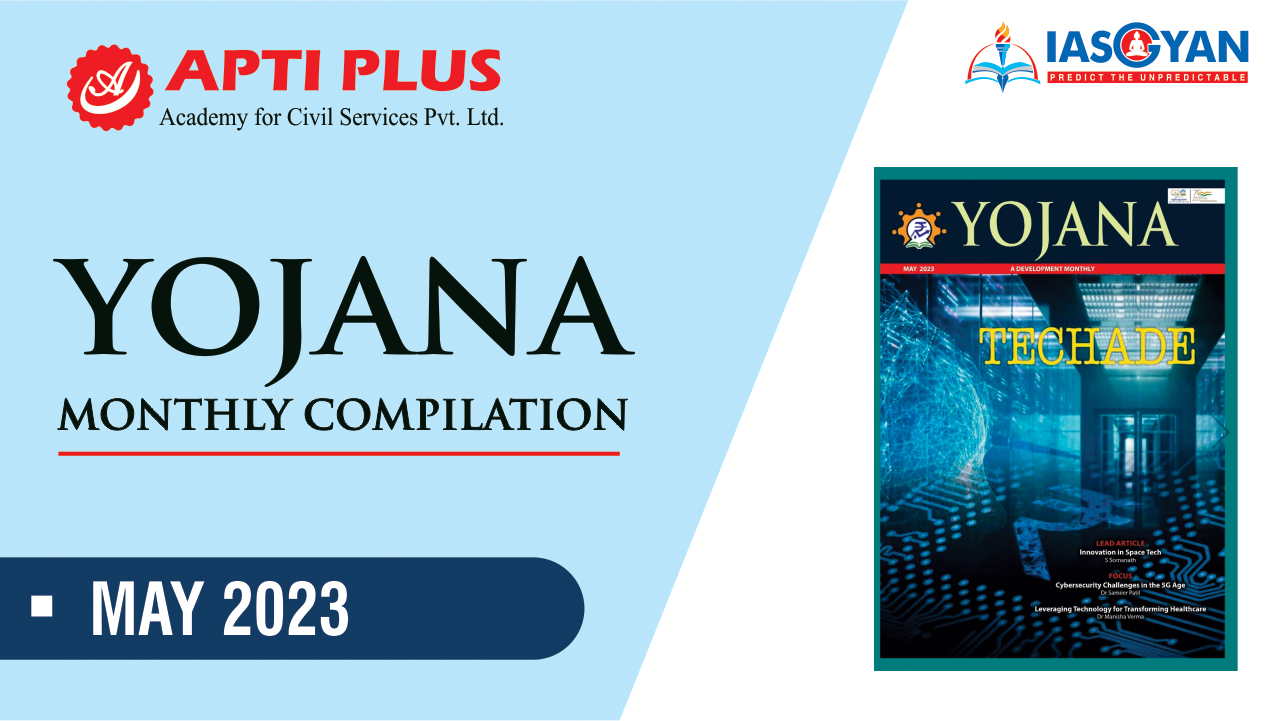.png)
Copyright infringement not intended
Context: In FY23, the insolvency tribunal “National Company Law Tribunal (NCLT)” accepted 180 resolution plans, the most ever in a single fiscal year. With this, NCLT has realised a total of Rs 51,424 crore from stressed assets.
Details
- This is the second largest recovery for creditors after FY19 when the total recovery was Rs 1.11 lakh crore.
- This enabled creditors of debt-ridden enterprises to recover 36% of their total realised claims of Rs 1,42,543 crore for the fiscal year ending March 31, 2023.
- The National Company Law Tribunal (NCLT) admitted 1,255 creditors' claims for the beginning of the Corporate Insolvency Resolution Process (CIRP) in FY23, which is also the largest number since 2019.
- Construction Sector accounted for 11% of total CIRP admissions till the end of March 2023, while wholesale and retail trade accounted for 10%.

National Company Law Tribunal (NCLT)
About
- It is a quasi-judicial body that adjudicates matters related to corporate disputes in India. The tribunal was established by the government of India on 1 June 2016 under the Companies Act 2013 and is based on the suggestion of the V. Balakrishna Eradi committee on the law relating to insolvency and the winding up of firms.
- The NCLT has the power to deal with matters such as arbitration, compromise, arrangements, reconstructions, winding up, oppression and mismanagement of companies, and insolvency resolution process of companies and limited liability partnerships under the Insolvency and Bankruptcy Code, 2016.
- The NCLT has 16 benches across the country, including the principal bench located in New Delhi.
Composition
- The NCLT is headed by a president, who is appointed by the central government in consultation with the chief justice of India. The president is assisted by judicial and technical members, appointed by the central government.
- The NCLT consists of a President and several Judicial and Technical Members who are appointed by the Central Government.
- The President of the NCLT is a retired Chief Justice or a Judge of a High Court.
Objectives
- To provide a speedy and efficient resolution of corporate disputes in India.
- To promote good governance and transparency in the corporate sector.
- To reduce the burden on the civil courts and streamline the process of corporate litigation in India.
- To provide a single window for resolving various disputes involving companies and their stakeholders.
- To enhance the ease of doing business in India and boost investor confidence.
The NCLT has wide-ranging powers and functions under the Companies Act, of 2013. Some of them are:
- To approve schemes of mergers and acquisitions.
- To order an investigation into the affairs of a company.
- To sanction the prosecution of directors or officers of a company.
- To impose penalties for non-compliance with the Act.
- To adjudicate disputes between shareholders and management.
- To grant relief in cases of oppression and mismanagement.
- To order the winding up or liquidation of a company.
- To approve schemes of revival or restructuring of a company.
- To initiate an insolvency resolution process against a company.
- To appoint interim resolution professionals or liquidators.
The NCLT follows a summary procedure for hearing and disposing of cases. It can regulate its process and pass interim orders as it deems fit. The NCLT also has the power to impose penalties for contempt of its orders or any other offence under the Companies Act.
The NCLT also faces several challenges in its functioning and performance. Some of these challenges are:
Lack of adequate infrastructure and manpower
- The NCLT has 16 benches across India, but many of them are understaffed and lack proper facilities.
- The NCLT also suffers from a shortage of judicial and technical members, who are essential for deciding complex cases involving corporate law and insolvency matters.
- The NCLT needs to be equipped with more resources and personnel to handle the increasing caseload and ensure the timely disposal of cases.
Delays and pendency of cases
- Despite the statutory mandate to dispose of cases within a specified time limit, the NCLT often faces delays in delivering judgments and orders due to various reasons such as adjournments, interim orders, appeals, stay orders, etc.
- The pendency of cases before the NCLT also affects the efficiency and effectiveness of the insolvency resolution process, which is supposed to be completed within 180 days or 270 days in exceptional cases.
- The NCLT needs to adopt measures to streamline its procedures and reduce unnecessary delays in its proceedings.
Quality and consistency of judgments
- The NCLT is required to apply the principles of natural justice and follow the precedents set by the higher courts while deciding cases. However, there have been instances where the NCLT has given contradictory or inconsistent judgments on similar issues or facts, leading to confusion and uncertainty among the parties involved.
- The NCLT also needs to ensure that its judgments are well-reasoned and based on sound legal principles and evidence.
Capacity building and training
- The NCLT deals with complex and evolving areas of corporate law and insolvency law, which require constant updation of knowledge and skills.
- The NCLT members need to undergo regular training and capacity-building programs to enhance their competence and expertise in these fields.
- The NCLT also needs to collaborate with other stakeholders such as lawyers, chartered accountants, company secretaries, insolvency professionals, etc., to exchange views and best practices on various aspects of corporate law and insolvency law.
To overcome these challenges and improve the performance and efficiency of the NCLT, some possible measures are:
Strengthening the infrastructure and manpower
- Allocate adequate funds and resources for the upgradation and expansion of the infrastructure and facilities of the NCLT.
- Appoint more judicial and technical members to fill up the vacancies and reduce the workload of the existing members.
- Provide regular training and orientation programs for the members and staff of the NCLT to enhance their skills and knowledge.
Streamlining the judicial process and decisions
- The NCLT should adopt a uniform and consistent approach in dealing with various issues and disputes. The NCLT should follow the principles of natural justice, due process, fair play, transparency, accountability, etc.
- The NCLT should avoid unnecessary interference in the commercial decisions of the parties and respect their autonomy and contractual rights.
- The NCLT should ensure the timely disposal of cases and adherence to statutory timelines.
Enhancing coordination and cooperation among various authorities
- The NCLT should establish a mechanism for regular consultation and communication with various authorities such as MCA, IBBI, RBI, SEBI etc. The NCLT should seek their guidance and assistance on various technical matters whenever required.
- The NCLT should also avoid any conflict or overlap with these authorities and respect their respective roles and functions.
Increasing awareness and capacity building among stakeholders
- The NCLT should conduct awareness campaigns and workshops for the stakeholders such as lawyers, chartered accountants, company secretaries, resolution professionals, etc. to educate them about the objectives, functions, and procedures of the NCLT.
- The NCLT should provide stakeholders with relevant information and materials such as rules, regulations, guidelines, orders, judgments, etc. It should also encourage them to participate in the resolution process and cooperate with the tribunal.

Conclusion
- The NCLT has a crucial role to play in ensuring a fair, transparent and efficient resolution of disputes involving companies and their stakeholders. The NCLT also has a vital role to play in facilitating the revival of stressed assets and promoting a culture of entrepreneurship and innovation in India. The NCLT needs to strive for excellence in its service delivery and uphold the highest standards of judicial integrity and accountability.
Must Read Articles:
National Company Law Tribunal (NCLT): https://www.iasgyan.in/daily-current-affairs/national-company-law-tribunal-nclt-28
Insolvency and Bankruptcy Code:
https://www.iasgyan.in/daily-current-affairs/insolvency-and-bankruptcy-code-ibc-2016
https://www.iasgyan.in/daily-current-affairs/insolvency-and-bankruptcy-code-39
|
PRACTICE QUESTION
Q. The National Company Law Tribunal (NCLT) was established to provide a speedy and efficient resolution of corporate disputes and to facilitate the revival of stressed companies. However, the NCLT faces several challenges. How can the NCLT overcome these challenges and enhance its role in promoting a healthy corporate environment in India? How can the NCLT coordinate with other regulators and stakeholders to ensure a holistic and harmonious approach to corporate governance and insolvency?
|
https://economictimes.indiatimes.com/news/economy/policy/nclt-approves-180-resolution-plans-in-fy23-totalling-rs-51424-crore/articleshow/100740896.cms




.png)